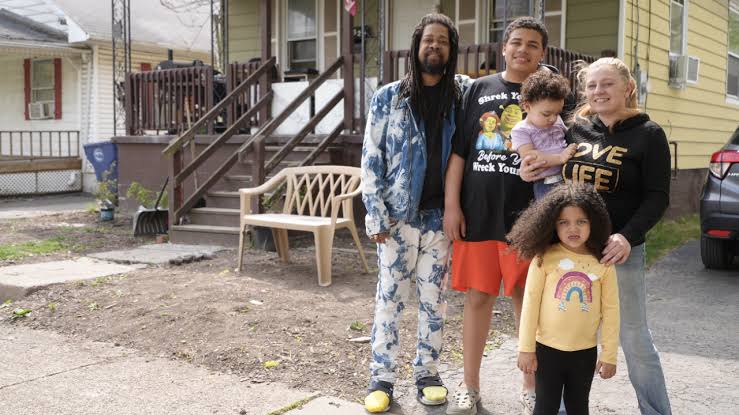Niagara Falls family fined nearly $2,300 after garden removed
Niagara Falls Family Fined Nearly $2,300 After Garden Removed: A Controversial Clash Between Environmental Effort and City Bylaws
Niagara Falls, Ontario — A Niagara Falls family has found themselves at the center of a heated community and environmental debate after being fined nearly $2,300 by the city following the removal of their front yard garden. The garden, designed to support pollinators and native biodiversity, was deemed in violation of local property bylaws, prompting officials to remove it and bill the homeowners for the cost.
The incident has sparked widespread concern among residents, environmentalists, and legal experts, many of whom question whether municipal bylaws are keeping pace with modern environmental consciousness.
A Garden With a Purpose
The family, who wishes to remain anonymous for privacy reasons, said they planted their garden several years ago with the intention of creating a natural, eco-friendly landscape. Filled with native plants such as milkweed, goldenrod, and black-eyed Susans, the garden aimed to support pollinators like bees and butterflies — especially the endangered monarch butterfly.
“It wasn’t a regular lawn, no,” the homeowner said. “But it was healthy, beautiful in its own way, and a small way we could help the environment.”
Naturalized gardens have gained popularity across North America as homeowners look for sustainable alternatives to conventional grass lawns, which require frequent mowing, watering, and pesticide use. These gardens not only save resources but also provide crucial habitat for insects and birds in urban settings

The City’s Perspective
Despite the family’s good intentions, the City of Niagara Falls viewed the garden as a violation of property standards bylaws. According to the city, the garden became overgrown, exceeded height limitations, and included several species considered weeds under local regulations.
City officials claim they issued multiple warnings and notices before finally sending a crew to remove the garden. The family was then billed nearly $2,300 for the labor, equipment, and disposal fees associated with the removal.
“We understand the desire for sustainable landscaping,” said a city spokesperson. “But property standards exist to protect all residents from potential hazards, pests, and the devaluation of surrounding properties.”
The city also emphasized the importance of maintaining a certain uniformity and order within residential neighborhoods, which they say helps prevent disputes and promotes safety.
Public Reaction and Outrage
The story quickly spread throughout Niagara Falls and beyond, with many expressing outrage over the city’s handling of the situation.
“It’s ridiculous,” said local resident Anne Michaels. “We should be encouraging people to plant natural gardens, not punishing them for doing the right thing.”
Several environmental organizations have come to the family’s defense, calling the city’s actions outdated and short-sighted. They argue that current property bylaws fail to reflect modern environmental priorities and ignore the ecological benefits of native plant landscaping.
“This is not just about one family’s garden,” said Sarah Gibbons of the Ontario Environmental Coalition. “This is about how cities across the province — and the country — need to rethink green space and support sustainable practices.”
Similar Cases Across Ontario
The Niagara Falls case is not unique. Across Ontario, similar disputes have emerged between homeowners and municipalities over naturalized gardens and lawns.
In Burlington, a resident had their front yard garden — also planted with native flowers — razed by the city. The homeowner was threatened with significant fines and was devastated by the loss of years of work. The incident received national media coverage and forced the city to reconsider its enforcement policies.
Another example comes from Smiths Falls, where a family battled local officials over their front and backyard naturalized landscaping. After months of legal back-and-forth, the town eventually agreed to cover the family’s legal fees and launched a review of its property standards.
These cases illustrate a broader trend — homeowners embracing environmentally friendly practices are sometimes met with resistance from municipalities operating under outdated bylaws that prioritize traditional aesthetics over ecological value.
The Legal Landscape
Legal experts say the Niagara Falls incident raises important questions about personal property rights and the enforcement of municipal regulations.
“Cities have the right to set property standards,” said municipal lawyer Peter Greaves. “But they also have a responsibility to evolve those standards as societal values change. What was considered overgrown or undesirable 30 years ago might now be viewed as progressive and beneficial.”
Greaves adds that courts are increasingly sympathetic to residents who can demonstrate that their gardens serve a greater ecological purpose.
“The tide is turning,” he said. “More and more legal decisions are favoring naturalized gardens, especially when they are well-maintained and serve important environmental functions.”
Calls for Policy Change
In the wake of this controversy, many in Niagara Falls are calling for the city to review and revise its property bylaws to better accommodate naturalized landscapes.
Local councillor Janet Fraser has proposed introducing a permit system for naturalized gardens, which would allow residents to register their eco-friendly spaces and receive guidelines to ensure they are maintained to a certain standard.
“We want to support sustainability,” said Fraser. “But we also need to make sure it’s done safely and respectfully. A permit system might be the middle ground we need.”
Environmental groups are pushing for broader reforms, including public education campaigns and financial incentives for residents who replace grass lawns with native plants.
“Cities should be leading the way in climate and biodiversity efforts,” said Gibbons. “We need policies that reflect that urgency.”
A Personal Setback, A Public Lesson
For the Niagara Falls family at the heart of the story, the experience has been heartbreaking — but they hope their case sparks meaningful change.
“We just wanted to do something good for the planet,” the homeowner said. “Instead, we were punished for it. But if this leads to better rules and more awareness, maybe it wasn’t all in vain.”
As climate change and biodiversity loss become pressing global issues, cities like Niagara Falls are being asked to reconsider long-standing rules and recognize the environmental value of gardens that may not fit traditional ideals — but do offer hope for a more sustainable future.






